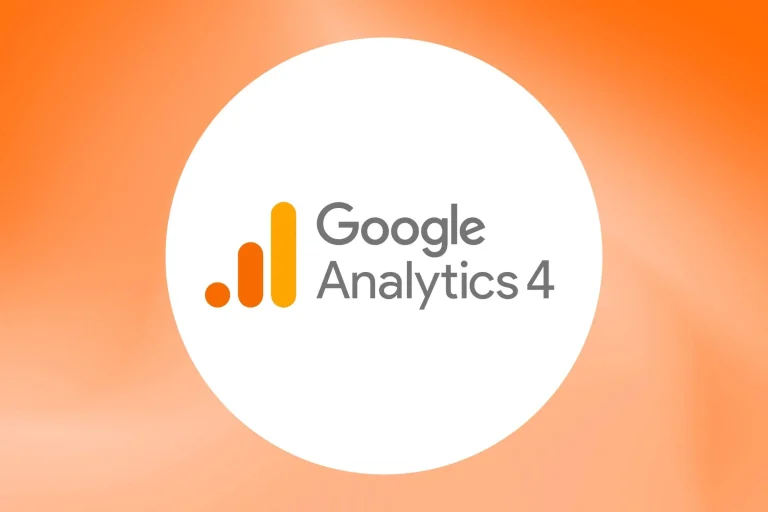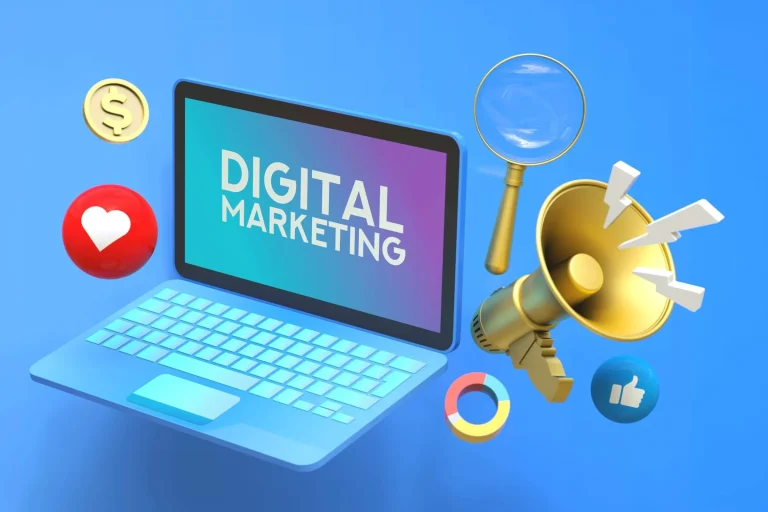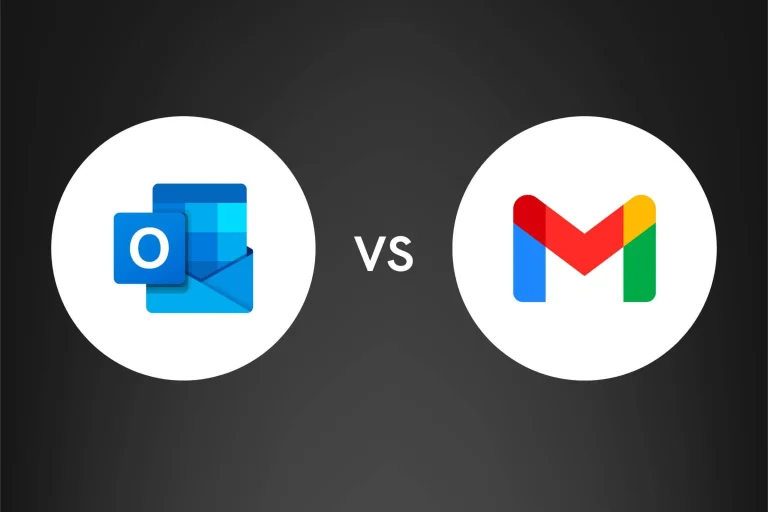In the changing landscape of technology and media, digital marketing is becoming increasingly popular. But what exactly is it? Digital marketing is a form of marketing that uses the internet and other digital technologies such as mobile phones, display advertising, and any other digital medium. It allows marketers to reach their target audiences more effectively than traditional methods like print, radio, or television advertising. This blog post will look at digital marketing and how it can help your business grow. Finally, we’ll cover topics like search engine optimization (SEO), social media marketing (SMM), content marketing, analytics, and more!
What is digital marketing?
Digital marketing is the process of using digital technologies to promote or market products or services. It can be used to reach a large audience through the use of electronic devices, such as computers, mobile phones, and other digital media.
Digital marketing encompasses many activities, including SEO (search engine optimization), content marketing, online advertising, social media marketing, email marketing, and more. By using digital technologies and strategies, businesses can connect with customers and prospects in new ways that were not possible before.
Digital marketing is an important part of any business’s overall marketing strategy. By incorporating digital marketing into your overall marketing mix, you can reach a wider audience more effectively and efficiently. In addition, you can achieve your business goals and objectives with the right digital marketing strategy.
Why is digital marketing important?
Digital marketing is important for many reasons. First, your marketing message allows you to reach a larger audience. With the help of digital marketing, you can target specific demographics and geographies with your marketing campaigns. This helps you save money and time by reaching only those most likely interested in your product or service.
Digital marketing helps you measure your marketing campaigns’ results more accurately. With traditional marketing methods, it can be difficult to tell how many people were exposed to your message and how many actually responded. With digital marketing, you can track how many people saw your ad, clicked on it, and took some action as a result. This allows you to fine-tune your marketing campaigns more effectively and efficiently.
Digital marketing allows you to connect more personally with customers and potential customers than traditional marketing methods. For example, you can use email, social media, and other digital channels to build relationships with leads and customers. This allows you to nurture these relationships over time so that they eventually turn into sales.
Digital marketing allows you to customize your marketing messages for each customer. With traditional mass media advertising, everyone who sees or hears your ad gets the same message. But with digital marketing, you can segment your audience and send different messages to different groups of people. This allows you to tailor your marketing to be more relevant and engaging for each individual.
The different types of digital marketing
- Social Media Marketing: This type of digital marketing involves creating and sharing content on social media platforms to build relationships with potential and current customers.
- Search Engine Optimization: This type of digital marketing focuses on improving the visibility of a website in search engine results pages.
- Pay-Per-Click Advertising: This type of digital marketing allows businesses to advertise online through pay-per-click ads like Google Ads.
- Content Marketing: This type of digital marketing revolves around creating and distributing valuable, relevant, and engaging content to attract and retain customers.
- Email Marketing: This type of digital marketing involves sending emails to potential and current customers to build relationships and drive sales.
The benefits of digital marketing
Digital marketing has become an essential part of modern marketing strategies—and for a good reason. It allows businesses to connect with their target audience(s) online through various channels, including email, social media, search engines, and more. Additionally, digital marketing can be done relatively inexpensively compared to other marketing strategies like television or print ads.
High reach: With digital marketing, businesses can communicate with a large audience quickly and easily. This is especially beneficial for small businesses that may need more resources to invest in traditional marketing methods.
Increased engagement: Digital marketing techniques allow you to achieve high engagement with your target audience. This means that you can build relationships with potential and current customers and encourage them to take action (such as making a purchase).
Improved ROI: Because digital marketing is so efficient, it often delivers a higher return on investment than traditional marketing techniques. This makes it an attractive option for businesses of all sizes.
Flexibility: Digital marketing is highly adaptable, so businesses can change their strategies as needed to respond to the ever-changing landscape of the online world.
The challenges of digital marketing
Digital marketing is a relatively new field, and many challenges still need to be addressed. For one, the digital landscape is constantly changing, making it difficult to keep up with the latest trends. Additionally, digital marketing requires a different skill set than traditional marketing, and it can be difficult to find qualified employees with those skills. Finally, because digital marketing is so data-driven, it can take time to measure the results of campaigns and to know whether or not they are truly effective.
Inbound Marketing vs. Digital Marketing
Digital and inbound marketing are essential strategies for driving online traffic and generating leads. But what’s the difference between the two?
Inbound marketing is about attracting customers to your website or blog through SEO, social media, and other organic means. Once they’re there, you engage with them through relevant content that solves their problems or answers their questions.
Digital marketing, on the other hand, encompasses various activities, including paid search, display, email, and affiliate marketing. It’s about getting your message in front of as many people as possible, regardless of whether they’re actively searching for your product or service.
So which one should you focus on? The answer is both! By combining inbound and digital marketing tactics, you’ll reach more people than you would with either strategy.
Does digital marketing work for all businesses?
Digital marketing is an essential part of any modern business. However, it’s not a one-size-fits-all solution. The type of digital marketing that works best for a particular business depends on the sector, the size of the company, and the goals they’re trying to achieve.
For example, a small local business might get the most bang for its buck from a targeted social media campaign that promotes its products or services to people in their area. On the other hand, a large corporation might succeed more with a comprehensive digital marketing strategy that includes everything from search engine optimization to pay-per-click advertising.
Ultimately, there is no right or wrong answer to digital marketing; the key is experimenting and finding what works best for your business.
How to get started in digital marketing
Digital marketing is a huge field with many different facets. To get started in digital marketing, you must identify your niche and build a strategy.
- Figure out your niche. What are you good at? What do you enjoy? What are you passionate about? Once you have answered these questions, you can start narrowing down your focus and build a digital marketing strategy around it.
- Develop a plan. Now that you know what area to focus on, it’s time to start developing a plan. This plan should include goals, tactics, and timelines. With a plan, it will be easier to measure your success and determine what needs to be improved.
- Execute your plan. Now that you have a plan, it’s time to start executing it! This is where the rubber meets the road, and you will see whether your digital marketing strategy is working. Be sure to track your progress and adjust as needed along the way.
How to Measure the Success of Your Digital Marketing Strategy
Digital marketing can be an extremely effective way to reach and engage customers and prospects. But how do you know if your digital marketing strategy is working? Here are some key metrics to help you measure the success of your digital marketing strategy:
Website traffic: This is perhaps the most obvious metric, but it’s important to track. Check your website analytics to see how much traffic you get from your digital marketing efforts.
Leads generated: If your goal is to generate leads, then track how many leads you’re getting from your digital marketing campaigns. Again, website analytics can be helpful here.
Conversions: Track how many people are taking the desired action on your website, whether it’s signing up for a newsletter, downloading a white paper, or making a purchase.
Engagement: Engagement is important for building relationships with customers and prospects. Track engagement metrics such as time on site, pages per visit, and bounce rate to get an idea of how engaged people are with your website content.
Social media followers: If you’re active, track how many followers you have and what kind of engagement you’re getting (likes, comments, shares). This will give you an idea of whether your social media efforts are paying off.
Common Mistakes to Avoid When Implementing a Digital Marketing Strategy
Businesses make many common mistakes when implementing a digital marketing strategy. Here are some of the most common mistakes to avoid:
1. Not Defining Your Target Audience
One of the most common mistakes businesses make is not defining their target audience. With a clear understanding of your target audience, creating effective marketing campaigns that resonate with them will be easier. Instead, take the time to research your target audience and understand their needs and wants before embarking on a digital marketing strategy.
2. Not Having A Solid Plan
Another common mistake does not have a solid plan in place. Measuring your success and tracking your progress will only be possible with a plan. Before starting any digital marketing campaign, take the time to sit down and map out your goals and objectives. Once you have a plan in place, you can begin to implement tactics and track your results.
3. Not Utilising All Channels
Another mistake businesses make failing to utilise all available channels. In today’s digital world, several different channels can be used to reach your target audience, including social media, email, search engine optimization, and paid advertising. Make sure you utilise all channels available to reach your target audience for maximum impact.
4. Not Measuring Results
A final mistake businesses often make is not measuring the results of their digital marketing campaigns. Instead, it’s important to track and measure the performance of each campaign to ensure you are getting the most out of your digital marketing strategy. By tracking and measuring your results, you can identify which campaigns are working and which aren’t so that you can adjust your strategy accordingly.
Conclusion
Digital marketing is an exciting and ever-changing field, with new strategies always being developed. Understanding the basics of digital marketing can help you reach a wider audience and increase your ROI. Taking advantage of these strategies will allow you to maximize your investments in both your time and money to create the most successful campaigns possible. With the right knowledge, digital marketing can be a powerful tool for any business.















